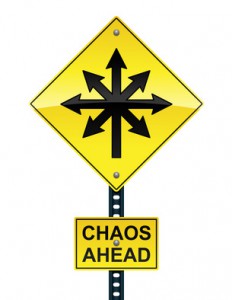Are You Kind or Image Conscious?
Imagine you were faced with a choice, a seemingly innocuous choice. For instance, you could watch a movie you’ve been dying to see or go to the fifth game of the fifteen-game series your child will play in this season. Or you could go home for dinner with your spouse or to an after-work social with coworkers at your favorite restaurant. These examples seem like small, common place choices, don’t they? Let’s add a small caveat to make it more interesting. A wizard or “fairy godmother” shows up. (I know they don’t exist. But stay with me for a moment.) The wizard can tell you exactly how your child or spouse will feel and respond based on your decision in this moment. Do you want to know? Or do you remain in the dark? The choice is yours…and that’s the real choice of this scenario.
Interestingly, in a meta-analysis of 22 studies, 40% of participants chose to remain ignorant of how their choice would impact other people in their lives. And compared to those who were simply told the consequence (with no choice to refuse the information), those who chose to learn the consequences were significantly more likely to show generosity or kindness.
Why would someone intentionally avoid learning the impact of their choices or actions on other people? Why would someone choose “willful ignorance”? This meta-analysis revealed a disturbing and rather convicting reason. Some people might avoid learning the consequences of their choices so they can maintain a view of themselves as kind while still engaging in what “I want to do,” AKA—selfish behavior. You’ve heard some version of that rational before, I’m sure. Maybe even used it yourself. Sadly, I have. You know, the “I would have come home for dinner, but I didn’t know it mattered so much to you.” “I would have cleaned up the cat’s hairball, but I didn’t see it.” We tell ourselves we are kind and missed the opportunity to act in kindness because we “just didn’t know” when, in fact, we chose not to know. By willfully choosing to not know the consequences of our behavior or the need at hand, we believe we have established “deniable culpability” for our lack of kindness. In other words, our willful ignorance becomes a cover for our selfishness.
On the other hand, the psalmist tells us that those who “speak the truth in their hearts” can abide with a loving God (Ps 15:1-2). Perhaps those who “speak the truth in their hearts” are also more likely to abide in a loving family. After all, when we “speak the truth in our hearts” we aren’t going to willfully choose to remain ignorant of our family’s needs nor are we going to willfully choose to ignore needs under the guise of “not knowing.”
Even more to the point, Paul tells those in Corinth that “love…does not seek its own,” it is not selfish. When we choose to remain unaware of how our choices and actions impact our family, we become selfish. We have “sought our own.” Love “does not seek its own,” not even through willful ignorance. Love is kind. Kindness takes the time to intentionally consider how our choices and actions will impact those we love. Based on that knowledge, kindness compels us to mindfully act in a manner that will prove most beneficial to the ones we love. No hiding the truth so we can do what we want under the guise of not knowing. Just intentionally seeking truth so we can lovingly act in kindness… because love is kind. Will you act in kindness? Or will you join the 40% who choose “willful ignorance”?

-0 Comment-